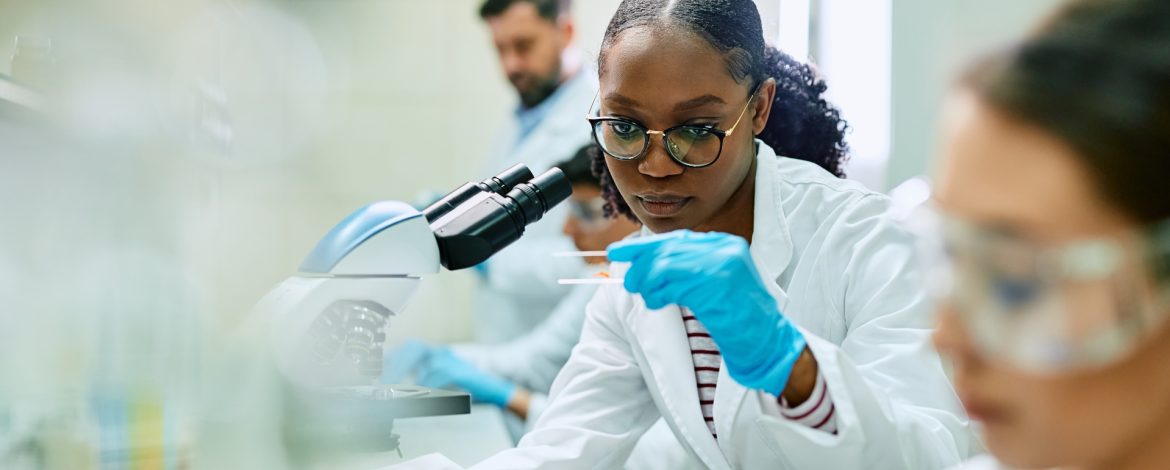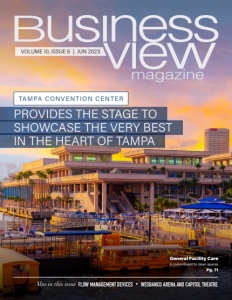*****Source- Industrytoday.com, Jess Lee, First Published 16, May, 2023
A 2022 McKinsey & Company study found employees are more likely to be engaged at work and committed to their careers if they find purpose in what they do and are making a difference in the world. At the same time, the workforce is evolving as younger generations that emphasize the importance of making commitments to broader societal challenges – climate change, sustainability, healthcare – climb the corporate ladder. Meaning that careers in STEM and the life sciences, especially after the last few years, are expected to continue attracting talent and grow in importance.
However, people of color and those living in systemically under-resourced communities, are historically underrepresented in STEM. White workers represent the majority of the workforce (67%), while Asian Americans (13%), Black (9%), and Latinx (8%) workers make up the rest, according to a 2021 Pew Research Study. What’s more, and where the industry needs to focus their attention, Black and Latinx adults are underrepresented among STEM college graduates, compared with their share of the population.
We can ensure the future STEM workforce is truly representative of the society we live in by developing innovative approaches to support students in schools historically underfunded. Through corporate-driven programs that fund STEM-based scholarships and internship programs, as well as the championing of academic programs and company volunteerism to promote STEM careers in these communities, we can make a meaningful difference. More diversity can translate into increased innovation and decreased attrition, which should also have a positive impact on revenue.
However, no one organization can do this alone and to be successful there needs to be active partnerships with organizations that have a shared vision for an equitable future. This can lead to unique collaborations that have a direct impact in our communities and on the lives of students.
For example, JA Worldwide, reaches more than 10 million young people a year, and is one of the world’s largest and most-impactful youth-serving organizations, delivering hands-on, immersive learning in work readiness, financial health, entrepreneurship, sustainability, STEM, economics, and more. A local example in New England, The Ron Burton Training Village (RBTV) works to enrich the lives of youth and has helped more than 9,000 junior high to high school-aged students. The program provides access and mentorship in areas including social skills, leadership, and education, and includes specialized STEM learning for girls that are based on real-world experiences and issues like disruptive technologies and autonomous vehicles.
Since 1990, STEM careers have steadily increased, having grown 79% in almost 30 years, with projected growth of over 10% by 2030. Additionally, the life sciences industry has undergone a tech revolution, introducing everything from advanced technologies and robotics to machine learning and natural language processing. While these two facts may not seem related, they are dependent upon each other.
As the industry advances there is greater need for diversity of thought and tech-agile individuals to join the workforce to continue to transform how we operate to streamline, advance, and optimize the work done across functions. By prioritizing STEM education and training for young individuals who might not otherwise be exposed to the vast career options in STEM-based fields, we can help create a more robust and agile workforce.
To support this cause and with a desire to help create diverse career opportunities, Waters Corporation invited students from Jeremiah Burke High School in Dorchester, Massachusetts, and Team New England, a youth development program that serves students in the Boston area, to participate in a pilot program during the summer of 2021. Together, we saw a significant opportunity to create an incredibly impactful program combining mentoring, education, business, and science – all aimed at one goal: to spark students’ interest through exposure, education, and hands-on experiences so they could envision new possibilities for their futures. Waters expanded its commitment, after the success of the pilot, by developing the Waters Student Academy, an internship program administered entirely by employees that is tailored to high school students, to provide hands-on experiences and exposure to people and the sciences across multiple scientific and corporate functions.
STEM-based organizations and communities have much to gain and contribute to the world by helping ensure that today’s students are tomorrow’s STEM visionaries. While programs can be designed to offer more opportunities to Black and Latinx students, there is still much more that can be done to encourage engagement and participation. We are on a mission to achieve a workforce that is reflective of our world for the best thinking, collaborations, and impact, and creating pathways to introduce students from all backgrounds to STEM careers is just the first step.

